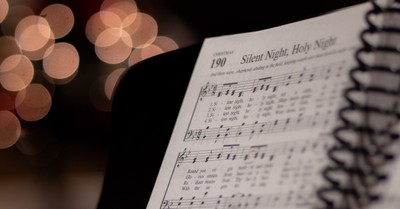$18 Million Worth of Cocaine Found in Bananas

Speaking to the United Nations General Assembly yesterday, President Trump stated that American culture is built on “deep faith.”
For evidence, we could point to Rolling Stone‘s headline: “A Christian Singer Is Bigger Than Drake and Ariana Grande This Week.” Lauren Daigle’s new album topped records by Drake, Ariana Grande, and Nicki Minaj on the Billboard 200.
Or we could note Pew Research Center’s report that more than 70 percent of Americans identify as Christians. America’s largest religious demographic is “Evangelical Protestant” at 25.4 percent.
However, America’s second-largest religious demographic is “Unaffiliated (religious ‘nones’)” at 22.8 percent. This is a larger percentage than “Catholic” (20.8 percent) or “Mainline Protestant” (14.7 percent).
As a sign of our troubled times, the Washington Post reports that homicides in Washington, DC, have now surpassed the number of people killed in the city in all of 2017. As another sign of the times, a group of protesters heckled Sen. Ted Cruz and his wife inside a Washington restaurant, forcing them to leave early.
And authorities say bananas donated to a Texas prison had nearly $18 million worth of cocaine hidden in the boxes.
Is culture like the weather?
As God’s people living in a fallen world, God’s word calls us to embrace a transformative balance.
We are warned to “touch no unclean thing” (Isaiah 52:11, quoted by Paul in 2 Corinthians 6:17). Much of our culture is off-limits for sincere followers of Jesus.
As D. A. Carson notes in his perceptive Christ and Culture Revisited, some evangelicals liken the culture to the weather–we can’t change it, so we should focus on individual souls and leave society to itself.
However, others claim that we earn the right to share Christ with people by first responding to the systemic issues they face–poverty, sex trafficking, and so on. We must engage culture to engage those affected by culture.
Both “sides” can claim biblical warrant. Jesus won Zacchaeus to himself (Luke 19:1-10), but he did not confront the evils of Roman taxation that Zacchaeus represented. However, like the Old Testament prophets before him, our Lord condemned the hypocrisy inherent in the cultural systems of his day (cf. Matthew 23:1-36).
According to Carson, we should serve people and serve culture, but we should serve Christ above all. Abraham Kuyper was right: “There is not a square inch in the whole domain of our human existence over which Christ, who is sovereign over all, does not cry, ‘Mine!'” (his emphasis).
The most countercultural leader of all time?
God’s call to engage culture for Christ means that we must sometimes act in countercultural ways.
Daniel prayed to God in direct defiance of the king’s command (Daniel 6:6-11). Peter and John refused the Jewish Supreme Court’s demand that they cease preaching the gospel (Acts 4:18-20). Paul defied his Jewish culture in welcoming Gentiles without qualification into God’s family (Galatians 2:15-21).
Jesus may have been the most countercultural leader of all time. It’s hard to think of anything he did that did not defy the conventional wisdom of his day in some way.
He assembled his apostolic band from Galilean businessmen rather than Judean rabbis. From harvesting grain on the Sabbath (Mark 2:23-27) to touching a leper (Matthew 8:3) to befriending a Samaritan woman (John 4) to eating with “tax collectors and sinners” (Matthew 9:10-13), his ministry defied the expectations of his culture. Even when the crowds welcomed him as their Messiah (Matthew 21:1-10), he shocked them by dying on a Roman cross.
It stands to reason that those who serve God must oppose those who oppose him.
“We must be made disciples supernaturally”
But here’s where our call becomes more complicated: our Lord wants us to stand against sin, but he also wants us to love sinners.
Upon learning that God had rejected Saul because of his disobedience, Samuel “cried to the Lord all night” (1 Samuel 15:11). Paul had “great sorrow and unceasing anguish” in his heart for his lost Jewish kinsmen (Romans 9:2). Jesus wept over Jerusalem’s rejection of their Messiah (Luke 19:41-44).
“Speaking the truth in love” is God’s word for us today (Ephesians 4:15). Such compassion for the lost mirrors the heart of a Father who is “not wishing that any should perish” (2 Peter 3:9) but wants everyone to “turn, and live” (Ezekiel 18:32).
And it earns us a hearing with those we are called to serve. We can reject the criticisms of an enemy far more easily than those of a friend.
A prayer in the dark
I was walking in my neighborhood early yesterday morning and marveled at the beauty of the full moon. The darker the streets I walked, the brighter the moon seemed.
I found myself praying that the Son would be reflected in my life as fully as the sun was reflected in the moon. I prayed that I would set aside anything that blocks my ability to reflect God’s truth and love to those who need them. And I prayed that I would stay faithful in the dark until the Son returns at dawn.
We’re one day closer to eternity than ever before. And so is every lost person we meet today.
NOTE: Please join me today for a live Q&A on Facebook Live at 12 p.m. CST. I will take questions and discuss the latest headlines. Click here to visit our Facebook page. I hope to see you there.
For more from the Denison Forum, please visit www.denisonforum.org.
The Daily Article Podcast is Here!
Publication Date: September 26, 2018
Photo Courtesy: Mike Dorner/Unsplash

.jpg)

















